“I Am Who I Choose To Be” said Lois McMaster Bujold.
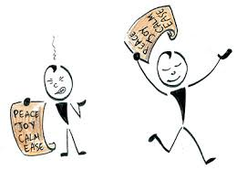
| Private Counseling |
|
BLOG
Appointments:
Monday - Thursday:
morning and afternoon appointments
“I Am Who I Choose To Be” said Lois McMaster Bujold.  We are our choices. We can choose to control our choices, actions, and behaviors. The act of choosing to have self-control takes practice and time.
0 Comments
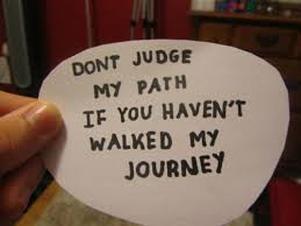 They say, “Walk a mile in someone else’s shoes to know their struggles.” This seems like a very difficult task for most people. Every day, we observe signs of people lacking empathy and lashing out at others, before they attempt to understand the entire situation. Consider these scenarios: * A car driving below the speed limit and blocking traffic. --> Maybe they are lost or bringing home their new baby for the first time. * A long line at the bank or grocery store. --> They need their money/items as much as you do. * A scowl on someone’s face when you say ‘hello.’ --> Perhaps they just received bad news or they are feeling ill or they didn't see you or they are insecure. * A loud, angry response to a simple question. --> Defensiveness is a sign of insecurity. * Miscommunication via email or text. --> Perhaps direct phone call or in-person communication is needed to fully understand context and body language. 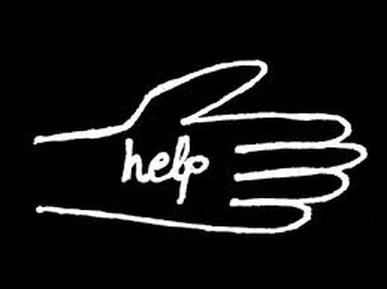 Did you wake up this morning (or in the middle of the night!) and think, "I need some help?" All you have to do is ask! Contact Bree today to discuss your emotional, personal, and mental health needs. I am happy to offer confidential therapeutic support. View all the counseling services available to you -- in the comfort and convenience of your home. 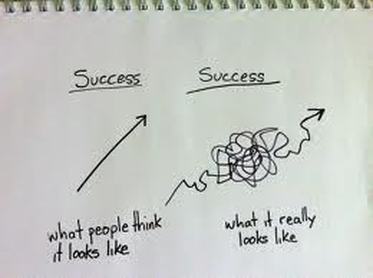 I have passion for my goals, so I prep and plan. I’m smart and educated. I’m a good person. Of course, everything will work out exactly how I always thought it would. Except, it didn’t!?! I’m confused. And I feel sad, disappointed, frustrated, and sometimes angry. How did this happen? Is it really true that I can’t have what I’ve always wanted? Did I really run out of time to accomplish this goal? Should I have made different choices along the way? Do I have to change my dreams, modify my goals … adjust?? Welcome to reality. It feels like a slap in the face. It hurts me emotionally. It fills my brain with racing thoughts. I repeat my unanswered question “why not?” to no avail. I feel defeated and lost. I want the outcome to be different. I want to know what I did wrong and how I can get back on track to reach my goals. Then, I remember: I am a counselor. I help people work through these same questions. I have 2 options: 1) I can wallow in self-pity or 2) I can accept this disappointment and adjust. Let’s look at my options:  As we approach the season of giving, it is good for your soul to reflect on the positive attributes you possess. Use the following questions and reminders to: Give T-H-A-N-K-S: T – Time: Do you manage you time or does it manage you? Are you enjoying the moments? What do you do to enjoy each day/week/month? How do you reward yourself once you fulfill your responsibilities? H – Health: Are you breathing? What is your body capable of doing? What are you physical strengths? Are you taking care of your mental health? How do you show your emotions? A – Attitude: Are you grateful and appreciative of your blessings? Do you look at each opportunity as a fun challenge or a difficult task? N – Needs: Are your basic needs met – food, water, shelter? Do you desire more than the basics? Do you believe you deserve more than the basic? I hope so! Make a list of your Wants and begin to fulfill your desires. K – Kindness: Play it forward by helping others. Leverage your skills by using your talent to assist others, both professionally and personally. What are your talents and skills? How can you be of assistance others? S – Sanity: Are you overwhelmed with the busy holiday season, being pulled in many different directions, and losing focus on the importance things in life? Your mental well being and sanity are more important than the excitement of the season! Take time to relax, rejuvenate, and relish in the important things – love, laughter, family, and friends. Are you having difficulty with giving T-H-A-N-K-S to yourself? Contact Bree at Private Counseling to schedule an initial session. 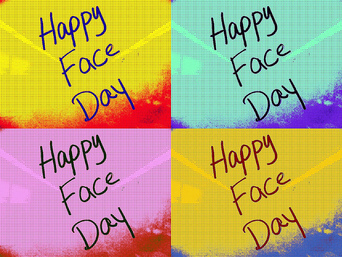 Have you ever noticed the look on your face when you are angry, upset, confused, or troubled by something? Is this the look you want others to see? I am constantly telling clients to “fix your face.” What is “fix your face?” It is a funny way to remind people how they show their emotions affects how other people respond to them. For example, if you walk around with a scowl on your face, other people tend to avoid you. It also helps remind individuals that adjusting their body language and facial expressions can alter their mood. For example, gritting your teeth and squinting your eyes shows anger. If you fix your face by consciously relaxing face muscles and portraying a calm expression, you start to feel calm. In addition, it gives you time to decide how you want to proceed in the current situation because you can easily use effective problem solving skills when you are calm and collected. Body Language and Facial Expressions are Behaviors Behaviors are a result of a specific thought causing you to feel a certain way. Using Cognitive Behavioral Therapy, start with changing your problematic thoughts. Use this simple formula: THOUGHTS -----> FEELINGS -----> BEHAVIORS Cause Cause |
Bree Winkler, LPC, Ed.SMy goal is to help you use coping skills, change thoughts, and manage behaviors in order to decrease anxiety and depression symptoms. Archives
March 2022
Categories
All
|